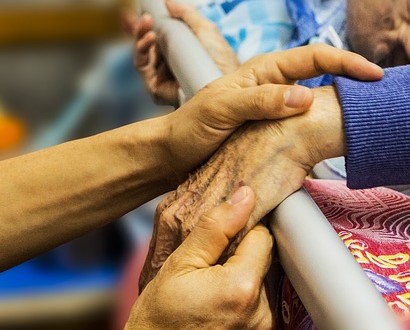To strengthen and improve the quality of palliative care in Croatia, May 11 is marked as National Palliative Care Day. As part of the right to health, the field of palliative care remains underdeveloped, which is why Ombudswoman Tena Šimonović Einwalter dedicated special attention to it in her 2024 Annual Report.
According to data from the Croatian Health Insurance Fund, there are a total of 47 coordinators and 41 palliative care teams contracted at the primary healthcare level, a number that remained unchanged in 2024 compared to 2023. A step forward has been made with an increase in hospital beds at the secondary and tertiary healthcare levels, but the total is still insufficient—782 beds in hospitals and one palliative care institution.
A significant issue is the lack of standardized education in pain medicine, specifically the fact that there is no official subspecialty in this area in Croatia. Although multiple requests have been submitted to the Ministry of Health for approval of a pain medicine subspecialty, approval has not yet been granted. Unfortunately, this results in some palliative patients being denied treatment based on the latest guidelines in certain clinics.
In addition to the shortage of palliative care beds, the association La Verna, a volunteer group working in palliative care, highlights several other systemic problems. These include inappropriate communication with patients and family members, lack of joint care planning, monitoring, and support, difficulty accessing home healthcare, unavailability of doctors, Friday hospital discharges without planned care arrangements at the primary level, as well as a lack of teamwork and communication between different professionals within the same facility.
Beyond insufficient training of professionals, the lack of inpatient care facilities, and poor coordination between the healthcare and social welfare systems, a particular challenge involves palliative patients requiring specialized care—such as patients in a coma—for whom there is insufficient placement capacity following hospital care.
In many cases, family members of palliative patients step in to compensate for these systemic shortcomings, including hospital discharges without further care planning, lack of patient follow-up and support, and difficulties in exercising the right to home healthcare.
A key foundation for improving the current situation—and ensuring quality palliative care for everyone who needs it—should be the National Program for the Development of Palliative Care in the Republic of Croatia 2023–2026. Unfortunately, this program has not yet been adopted, and the Ombudswoman has once again urgently recommended its adoption.
You can learn more about the topic of palliative in the 2024 Annual Report of the Ombudswoman.


